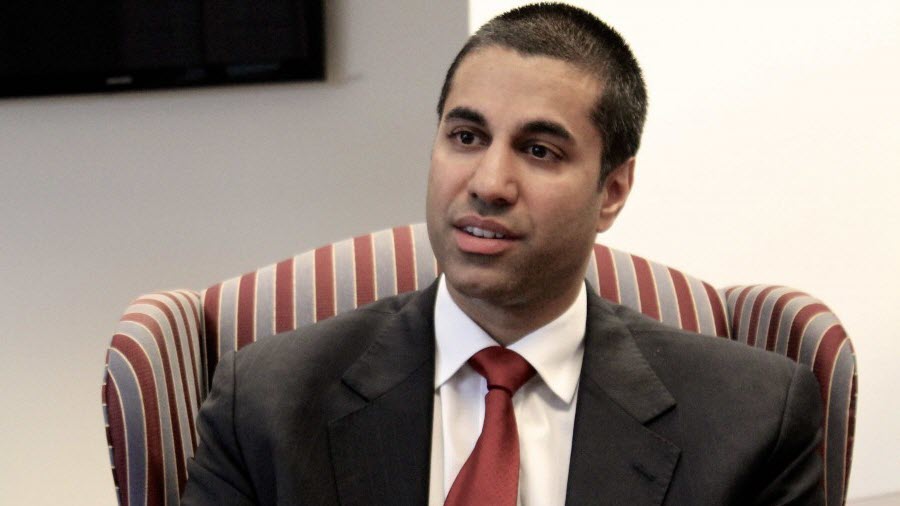Senate Commerce Passes Robocall Bill
The smarter way to stay on top of the multichannel video marketplace. Sign up below.
You are now subscribed
Your newsletter sign-up was successful

The Hill is getting serious about cracking down on illegal robocalls. FCC chair Ajit Pai has made that a priority, but the Senate was signaling he needed some help.
The Senate Commerce Committee Wednesday (April 3) passed the bipartisan Telephone Robocall Abuse Criminal Enforcement and Deterrence (TRACED) Act, which was introduced by Sens. John Thune (DR-S.D.) and Ed Markey (D-Mass.).
The bill boosts the FCC's authority to fine telemarketers, gives it more time to identify them and take action, and requires carriers to adopt call ID technologies.
Thune said more needed to be done to combat the scourge of unwanted calls. "I’m glad the committee recognized the importance of this legislation to combat this problem, which is now the top consumer complaint submitted to the Federal Trade Commission," he said.
The bill:
1. "Broadens the authority of the Federal Communications Commission to levy civil penalties of up to $10,000 per call on people who intentionally flout telemarketing restrictions.
2. "Extends the window for the FCC to catch and take civil enforcement action against intentional violations to three years after a robocall is placed. Under current law, the FCC has only one year to do so, and the FCC has told the committee that “even a one-year longer statute of limitations for enforcement” would improve enforcement against willful violators.
The smarter way to stay on top of the multichannel video marketplace. Sign up below.
3. Brings together the Department of Justice, FCC, Federal Trade Commission (FTC), Department of Commerce, Department of State, Department of Homeland Security, the Consumer Financial Protection Bureau, and other relevant federal agencies, as well as state attorneys general and other non-federal entities to identify and report to Congress on improving deterrence and criminal prosecution at the federal and state level of robocall scams.
4. "Requires voice service providers to adopt call authentication technologies, enabling a telephone carrier to verify that incoming calls are legitimate before they reach consumers’ phones.
Directs the FCC to initiate a rulemaking to help protect subscribers from receiving unwanted calls or texts from callers."
Cable operators said they appreciated the effort and NCTA-The Internet & Television Association said it would work with other members for full Senate passage.
“Combatting illegal robocalls is a serious and complex problem. NCTA appreciates the bipartisan leadership of Senators Thune and Markey on the Telephone Robocall Abuse Criminal Enforcement and Deterrence (TRACED) Act to keep consumers safe from scammers," NCTA said.
Charter suggested it was already hard at work weeding out the calls, but appreciated the help.
“Like everyone else, Charter wants annoying robocalls calls to end and we’re working hard to stopping these unwanted and illegal calls that are not only a nuisance but can also be a security threat," the company said. "Charter is committed to offering our customers a broad range of tools including call blocking, screening, and identification features like the Nomorobo app to help them control the calls they receive. Like other voice providers, we’re also implementing the call authentication protocol known as SHAKEN/STIR. We support legislation by Senators Thune and Markey that proposes meaningful timeframes around that effort and significantly enhances consumer protections.”
“For years, USTelecom and our members have been hard at work tracking down illegal robocallers, leading the way in the deployment of new call authentication standards to accelerate the fight against the robocall epidemic and thwart efforts to defraud American consumers," said Patrick Halley, SVP of law and policy. "The TRACED Act will bolster our shared goal of bringing illegal robocallers to justice with enhanced government prosecution, including criminal prosecution.”
“We thank Senators Thune and Markey for developing a balanced, bipartisan approach to combatting illegal and unwanted robocalls and applaud today’s action on the TRACED Act in the Senate," said CTIA, the wireless association. "This bipartisan legislation enhances the FCC’s ability to protect American consumers and acknowledges the important role the wireless industry has to play in implementing call authentication.”
Contributing editor John Eggerton has been an editor and/or writer on media regulation, legislation and policy for over four decades, including covering the FCC, FTC, Congress, the major media trade associations, and the federal courts. In addition to Multichannel News and Broadcasting + Cable, his work has appeared in Radio World, TV Technology, TV Fax, This Week in Consumer Electronics, Variety and the Encyclopedia Britannica.

